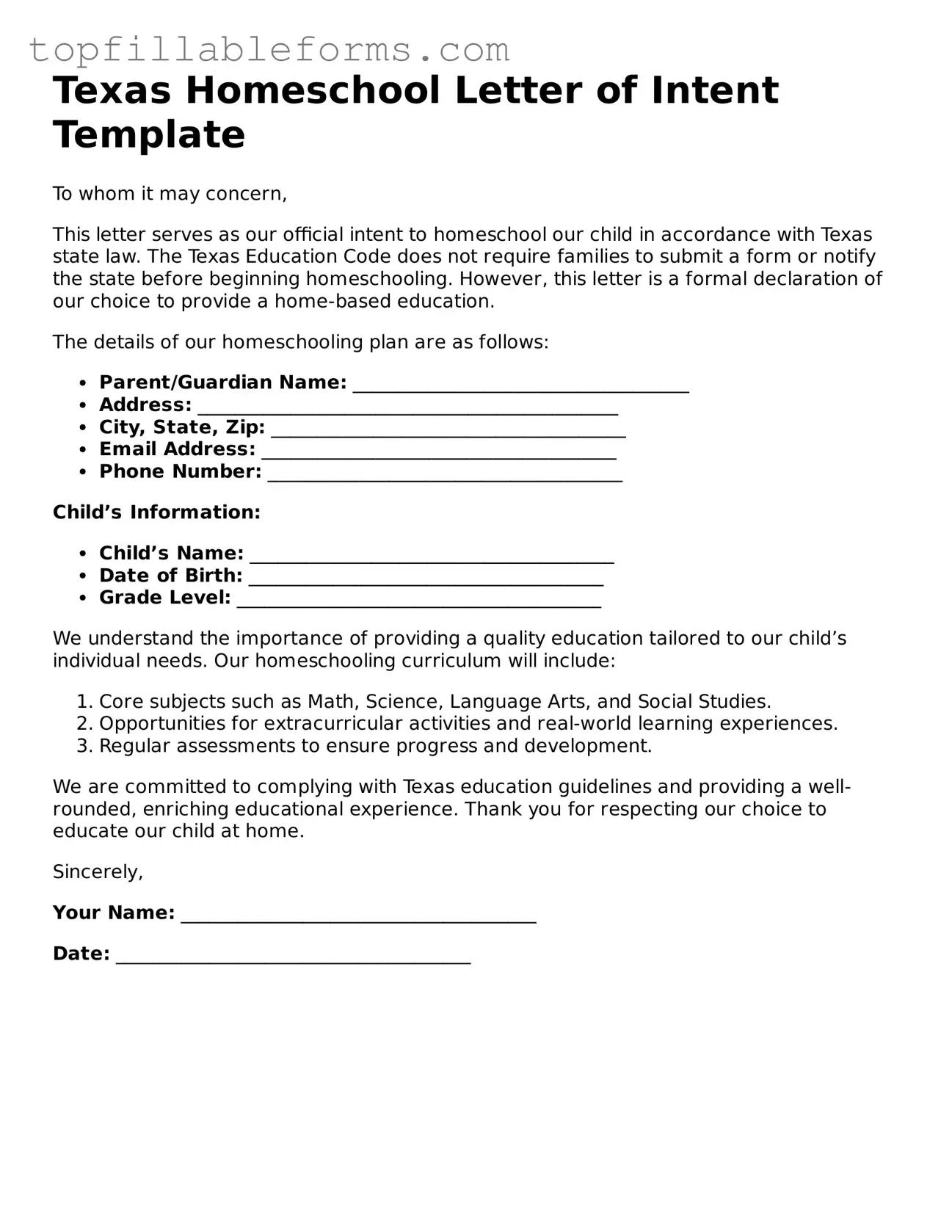Attorney-Verified Homeschool Letter of Intent Template for Texas
The Texas Homeschool Letter of Intent form is a document that parents submit to officially declare their intention to homeschool their children. This form is an important step in the homeschooling process, as it informs the local school district of the family's educational choice. By completing this form, parents can ensure they meet state requirements and begin their homeschooling journey with clarity and confidence.
Open Homeschool Letter of Intent Editor Here

Attorney-Verified Homeschool Letter of Intent Template for Texas
Open Homeschool Letter of Intent Editor Here
Finish the form now and be done
Finish your Homeschool Letter of Intent online by editing, saving, and downloading fast.
Open Homeschool Letter of Intent Editor Here
or
▼ PDF File
